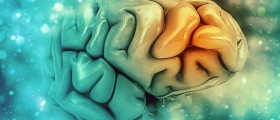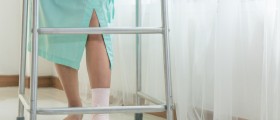Meniere's disease (idiopathic endolymphatic hydrops) is a debilitating medical condition characterized by spontaneous episodes of vertigo, tinnitus (ringing in the ear), fluctuating hearing loss and in certain cases a feeling of fullness (pressure) in the ear.
The onset of the diseases generally follows a characteristic pattern. Namely, initially, there is pressure build-up in the affected ear which causes tinnitus and hearing fluctuations. What follows is vertigo, occurring suddenly or within few hours/several days. After the attack is finished normal hearing is restored.
Vertigo accompanied by nausea and vomiting is the most prominent symptom of the disease. Other symptoms (tinnitus, loss of hearing and pressure in the affected ear) are of different intensity, frequency and duration. Apart from the mentioned in rare cases patients suffering from Meniere's disease may additionally complain about headache, abdominal discomfort and diarrhea.
Diagnosing Meniere's Diseases
The doctor investigates patient's history as well as frequency, duration, severity and the very character of the attacks. Patients are asked about their hearing and any hearing changes that may have occurred. It is essential to investigate all the illnesses patients have had (e.g. infections such as mumps or syphilis, inflammation of the eyes, autoimmune disorders). Allergies and previous ear surgeries must be reported.
After collecting data, doctors resume with diagnostic functional tests that evaluate patient's hearing and balance.
In order to assess the balance doctors perform electronystamography (ENG). This testing is performed in a darkened room. The results of certain body's activities are recorded by electrodes placed near patient's eyes. Testing includes introducing warm and cool air into each ear canal. The eye movements that occur as a result of stimulation of the vestibular system provide with sufficient data regarding patient's balance. Additional information is obtained from rotational testing and balance platform.
Hearing test is another powerful tool essential for evaluation of hearing in patients suffering from Meniere's disease.
Finally, one may need to undergo several more test like CT scan, MRI, ECoG (electrocochleography) and ABR (auditory brain response).
Meniere's Disease Treatment
There is no cure for the disease. However, symptoms of Meniere's disease can be easily brought under control with dietary changes (reduction in daily salt intake, abstinence from alcohol and coffee etc.) and certain medications. Patients may sometimes feel better if they quit smoking or learn techniques which release them from stress.
Persistent and debilitating vertigo that cannot be controlled by conservative means is treated surgically. Surgery performed in this purpose is known as labyrinthectomy. Another surgery that may be of great help is vestibular neurectomy.

















Your thoughts on this
Loading...